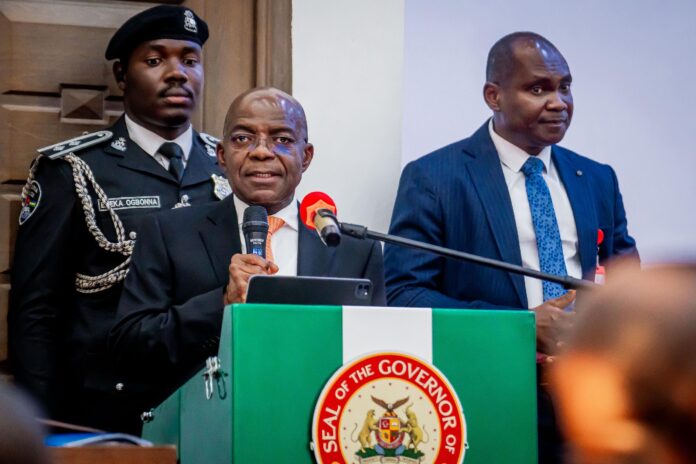Abia State Governor Alex Otti on Tuesday presented a N1.016 trillion ($1.3 billion) Appropriation Bill for the 2026 fiscal year to the State House of Assembly, outlining an aggressive capital expenditure plan designed to accelerate infrastructure development and economic growth.
The proposed budget, officially titled the “Budget of Acceleration and New Possibilities,” earmarks a massive N811.8 billion, representing 80 per cent of the total outlay, for capital projects, a significant emphasis on long-term development over recurrent spending. This heavy allocation marks a 32 per cent increase in capital expenditure from the state’s 2025 proposal. Conversely, the remaining N204.4 billion (20 per cent) is allocated for recurrent expenditure, largely covering personnel and administrative costs, which also saw a 33 per cent increase to accommodate the hiring of new government staff, including teachers.
In his address to the lawmakers, Governor Otti stressed his administration’s focus on fiscal discipline, particularly concerning debt financing. He projected a N409 billion deficit—40 per cent of the total budget—to be financed via concessional loans, but guaranteed that no borrowed funds would be used for overheads.
“We shall borrow only when necessary, and such funds will be deployed exclusively for projects capable of repaying themselves in the medium to long term,” Otti stated, affirming a commitment to only take on debt for self-liquidating ventures.
The Education sector received the highest priority, allocated N203.2 billion (20 per cent), aimed at funding the salaries of approximately 15,000 teachers and capital works like the construction of 17 model schools and three technical colleges. Health care followed closely with N149.7 billion (15 per cent), targeted at renovating seven general hospitals and equipping medical facilities across the state. Furthermore, road infrastructure and maintenance are set to receive N169.3 billion (16.7 per cent).
The Governor projected a significant rise in the state’s Internally Generated Revenue (IGR) for 2026, targeting N223.4 billion, stating that this income stream would be utilized to fully fund all recurrent expenditures. “For the 2026 fiscal year, we are raising the bar even higher… we project an increase in the State’s IGR portfolio to N223.4 billion,” he said, citing improved investor confidence and security as key drivers.





